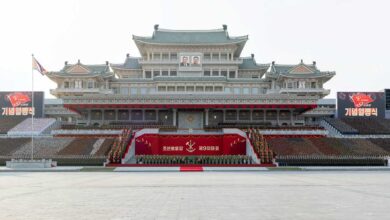At the close of 1952 when the Fatherland Liberation War against the US imperialist aggressors (June 1950–July 1953) was at its height in Korea, leading officials in the sector of forestry were assigned the task of preparing rules with regard to the organization and management of forest economy by President Kim Il Sung.
They framed draft rules in a short period of time by racking their brains together and devoting all their energies.
The President, examining all items of the draft rules in detail, rectified some points laid down incorrectly and supplemented the contents of the rules. After looking through the draft rules to the last, he told the officials that it was necessary to allocate rangers, noting that there should be the masters who would carry out these rules.
At that moment no one could open his mouth readily. At that time young and middle-aged men were all serving in the army and those remaining in the rear were mostly women.
Therefore, the officials were thinking that there was no alternative but to use the work force of the aged in the rear for the solution of the matter of rangers.
But, surprisingly enough, the President disclosed his intention to call back thousands of healthy men from the army and send them as rangers.
The officials could not but be astonished, because his words on calling back thousands of combatants to the rear in the thick of the war were more than surprising to them. But the President made such a definite decision, regarding the afforestation and forest conservancy as a matter no less important than the stubborn defence of every inch of the land, in view of the whole country’s falling into ruins caused by the US imperialists’ barbarous bombings.
Early in March next year, he saw to it that an unusual military directive having nothing to do with the war was issued, a directive of the Military Commission calling for strengthening forest conservancy, including the planting of trees through an all-inclusive mass movement and the surveillance of forest fires by using airplanes.

